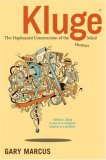|
Virtual Dictionary
Human Enhancement Human Enhancement is the phenomenon whereby humans modify their bodies, and /or augment them with wearable computing, cybernetic interfaces, neuroprosthetics, and new biological organs, eyetaps, eartaps and implants. With human enhancement, Darwinian evolution practices are discarded, and the individual takes a direct role in their own evolution. Below, we offer a selection of links from our resource databases which may match this term.
Related Dictionary
Entries for Human Enhancement:
Resources
in our database matching the Term Human Enhancement:
Results by page [1] [2] [3] [4] [5] [6] [7] [8] [9] [10] [11] [12] [13] [14] [15] An interview with Nick Bostrom, the director of the Future of Humanity Institute at Oxford University, and how he believes it's time to open the ethical debate surrounding human enhancement. Resource Type not Available 
The Virtual Human Interaction Lab (VHIL) at Stanford University is engaged in using VR to observe how humans interact when within non-physical realms. 
 Here we have a remote control, used to control what was originally a human, now just a glorified appliance. If the idea of a remote being used to control a human seems preposterous, remember GVS. Here we have a remote control, used to control what was originally a human, now just a glorified appliance. If the idea of a remote being used to control a human seems preposterous, remember GVS.
 An all too believable human/robot riot from the Animatrix short film duet 'The Second Renaissance'. Brought about by the continuing trend of human leaders and lawmakers to forget the lessons of the past. It is little different to slave trade arguments of that past, and so very likely to occur in the future, unless we are prepared for it. An all too believable human/robot riot from the Animatrix short film duet 'The Second Renaissance'. Brought about by the continuing trend of human leaders and lawmakers to forget the lessons of the past. It is little different to slave trade arguments of that past, and so very likely to occur in the future, unless we are prepared for it.
After photographer Eadweard Muybridge created his revolutionary photographs of animals in motion in the late 1890s, he turned his attention to the study of the human form, by taking detailed photographs in rapid succession step by step as the human body underwent all manner of daily activities. These photographs have served for over a century, as the most highly acclaimed reference point for animators. A MIT Presence magazine free feature. Roboticists believe that people will have an unpleasant impression of a humanoid robot that has an almost, but not perfectly, realistic human appearance. This is called the uncanny valley, and is not limited to robots, but is also applicable to any type of human-like object, such as dolls, masks, facial caricatures, avatars in virtual reality, and characters in computer graphics movies. The human brain is the ultimate legacy system, with bodges, klonks, workarounds and kludges forcing it to work as a (mostly) cohesive system. A BBC article on the 2012 state of the art in artificial intelligences that can write prose like a human would. It seeks to understand from that technology standpoint if a human novelist could be replaced by an AI any time soon. A detailed and in-depth article by the singularity hub, on the quest for integrating the human body with a sensory network, and what such will mean for us as individuals, health and life-wise.
Industry
News containing the Term Human Enhancement:
Results by page [1] (16/05/2009)
It won't be long before "clip-on" computer aids become available for everybody, says Andy Clark, a pro-enhancement philosopher at the University of Edinburgh in the UK. These could be anything from memory aids to the ability to "search...
(10/03/2008)
A raging debate is stirring in the academic community about the use of drugs to artificially increase the brain power of scholars, so that they can understand more, and work longer hours. Researchers researching with focus for longer, stude...
(21/12/2012)
Physicians should not prescribe cognitive enhancers to healthy individuals, states a report being published today in the Canadian Medical Association Journal (CMAJ). Dr. Eric Racine and his research team at the IRCM, the study’s authors, pr...
(06/06/2010)
A scientist at the University of Reading has become the first person in the world to be infected by a computer virus. Dr Mark Gasson, from the School of Systems Engineering, contaminated a computer chip which had been inserte...
(30/05/2010)
Researchers have discovered a chemical that specifically blocks people's ability to detect the bitter aftertaste that comes with artificial sweeteners such as saccharin. The key is a molecule known only as GIV3727 that specifically targets...
|
|
|||||||||||||||||||||||||||||||||||||||||||||||||||||||||


